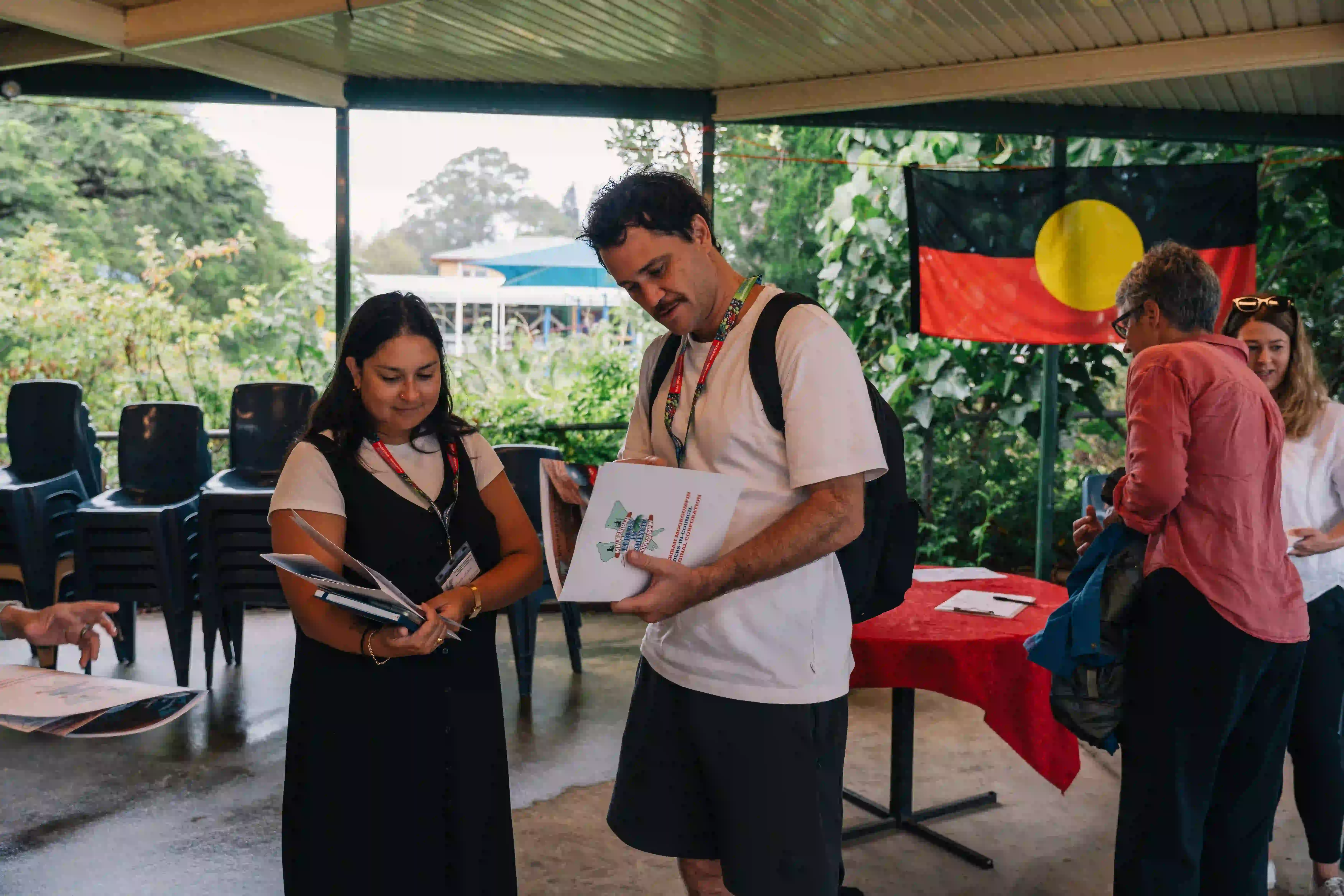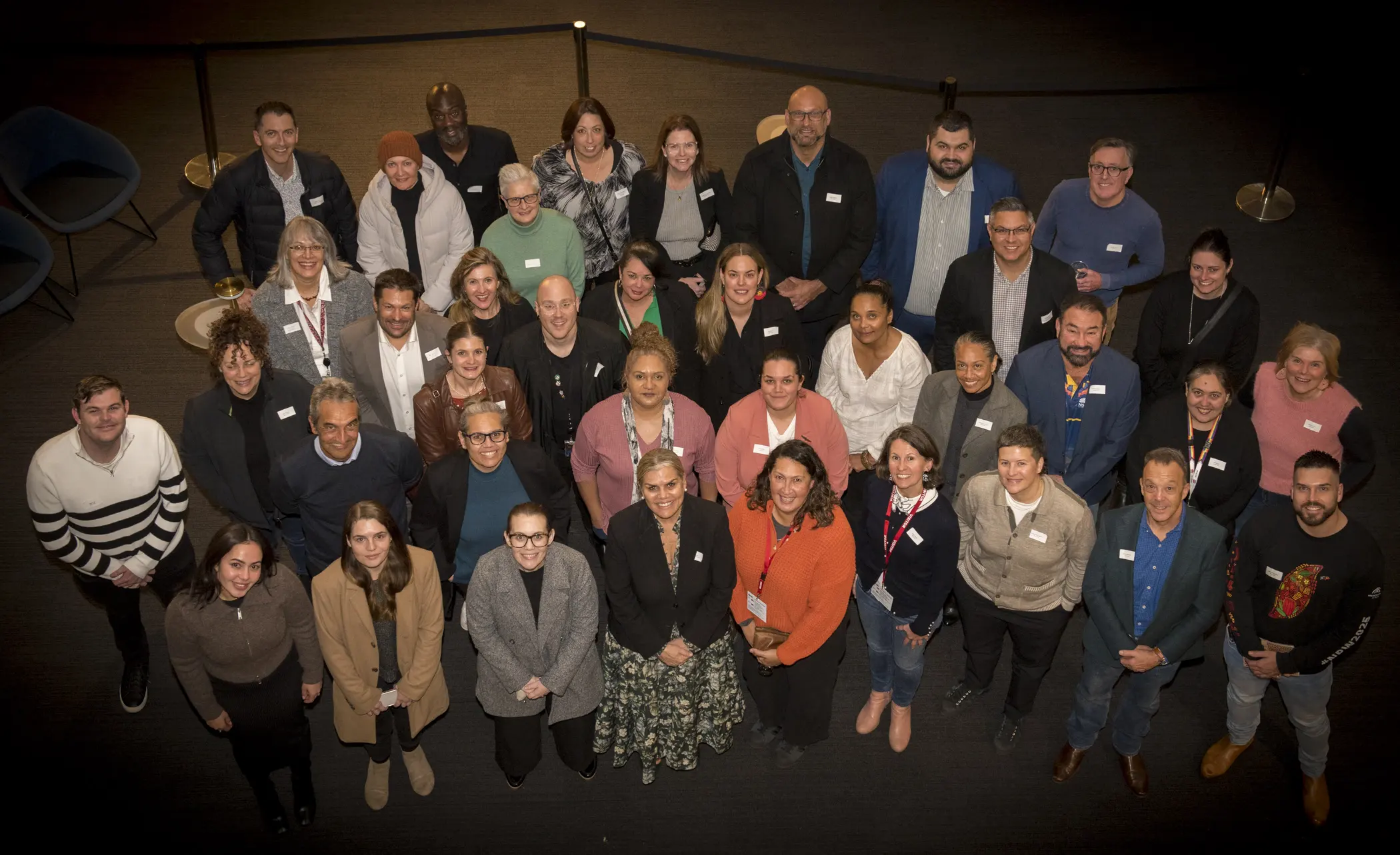The challenge and the commitment
As COVID-19 reached Australia, the Paul Ramsay Foundation Board acted quickly to reorient the Foundation’s efforts through a series of taskforces that recognised the significant impact that the pandemic was likely to have on disadvantage and on the social sector’s ability to sustain their critical role in supporting and strengthening communities.
The Board established the Sustaining our Partners Taskforce in late March to build partner resilience and strengthen the sector in the context of COVID-19 with a distribution delegation of $5M and up to $1M for resourcing, including engaging Social Ventures Australia to provide support to the taskforce from its inception. At the same time a COVID-19 Taskforce was set up to invest in responses to the health and economic impacts of the pandemic. Importantly, the Board committed to spend more of its corpus than usual.
The Foundation signed up to the Philanthropy Australia pledge around philanthropy’s response to the COVID-19 crisis and its elements – listening to partners, reducing or removing restrictions, increasing flexibility and funding, communicating proactively, offering loans, impact investments and support in addition to funding, providing support to emergency efforts, amplifying community voices and learning from the crisis – have guided our response.
What we did
In April and May the Sustaining our Partners Taskforce focused initially on near-term financial viability, identifying 49 partners at potential risk based on publicly available financial data, engaging in deeper due diligence with 18 partners and providing financial support to two partners. Due to the expansion of JobKeeper to charities, far fewer organisations had viability concerns than we had feared.
Since late May, we’ve provided financial, operational and strategic due diligence and support for scenario planning to a further 16 partners, committed a further $2.6M to 9 partner organisations and recommended a further $1.06M to be decided in coming weeks. The funding from the taskforce has included funds for new staff roles, advisory support, working capital, funded grant extensions and bridging grants (where the Foundation is considering longer term proposals leaving a potential funding gap between current and future funding). The funding is for extended delivery of already agreed outcomes, enhanced resourcing to respond to new or more complex needs, and funding to pursue new opportunities such as new service needs, new business opportunities for social enterprises and advocacy openings due to the pandemic.
In addition to funding, we’ve provided regular briefings on government stimulus supports and opportunities, webinars on sector sustainability and advocacy during the time of COVID, and 2 independently facilitated action learning sets where 16 partner staff have explored challenges with their peers without Foundation staff present.
We’ve engaged in sector and system-level interventions, collaborations and representations to Government to build greater long-term resilience in the sector including reframing existing strategic partnerships with Philanthropy Australia and Sydney Policy Lab to align our efforts to shift funding practice to build resilience and adaptability in the for purpose sector, sharing what we are learning with key government bodies and investing in the Centre for Social Impact’s longitudinal study on the Pulse of the Sector.
Our grant leads have continued to engage closely with partners throughout the crisis, and have been negotiating needed changes to existing grants such as financial reallocations and flexibility in reporting as well as providing advice and support as organisations and programs change and adapt.
We invested very consciously in learning throughout this process through facilitated reflections with our staff and our colleagues at Social Ventures Australia and listening to our partners. We have focused on translating emerging lessons into concrete actions within the Foundation – for example, adapting how we understand financial vulnerability and resilience and considering our role in contributing to financial resilience of partners into our due diligence processes. This report shares those emerging lessons.
What did we learn?
Financial vulnerability and resilience
Partners were not as vulnerable to near-term financial insolvency as initially feared by the Taskforce, due in part to the expanded coverage of JobKeeper. The full financial impacts of COVID-19 on partners are likely to play out over FY21 and beyond depending on available government supports, increased demand for services, reduced fundraising and overall economic conditions. To date those most affected have been social enterprises, smaller not for profits, particularly intermediaries and frontline services, and universities. In many cases, partners have seen COVID-19 exascerbate existing disadvantage including impacting services and opportunities for populations already facing significant challenges.
Systemic challenges around social sector funding were apparent in the impacts on organisations, including inflexible output based funding, the extent of deferred (government) funding, and the lack of full cost funding. These contribute to systemic vulnerabilities identified in Social Ventures Australia’s Financial Health Check on Australian Charities of charities’ low reserves, constrained and conditional funding, rising costs, and a lack of funding to invest in organisational capacity. These present significant ongoing issues for funders in philanthropy and government to work together to address to ensure that the social sector is funded at an adequate level to fulfill its important role, particularly at a time when many communities are facing new or more complex needs due to the impacts of COVID-19.
We observed some of our partners adeptly navigating their financial position by negotiating with suppliers and funders, securing new investment and reallocating or repurposing their resources to adapt to new needs. However, we also found that our partners’ and our own ability to understand financial vulnerability and resilience could be strengthened. On our side, we are working to better incorporate what we are learning about financial viability, vulnerability and resilience into our due diligence processes and have been testing different approaches to supporting our partners to consider their financial position and future plans with support from Social Ventures Australia.
Partner responses
As would be expected, partners were initially focused on addressing the immediate impacts of COVID-19 on the communities they work with and on their operations and finances including shifting service delivery and workforces online. For leaders, grounding decisions in organisational purpose and finding time to look up and ahead has been critical and challenging. We’ve found scenario planning, based on Deloitte Access Economic’s Economic scenarios for the COVID-19 recovery to be a useful framework for organisations to consider how they might operate or respond under mild, harsh and severe scenarios.
Just as COVID-19 has revealed systemic inequities in its uneven impacts and effects, so it has highlighted existing strengths and gaps in organisational capability for our partners and for the Foundation. For our partners, capability gaps often relate to the systemic funding issues raised above – in the absence of full cost funding and/or funding for capability building organisations can struggle to invest in critical areas of organisational effectiveness including financial modelling and digital capability. The Foundation has been consistently impressed by the adaptive leadership and creativity of our partners who have quickly and effectively shifted their operations, created new services and taken up leadership in their communities and sectors.
As public policy approaches to many areas are upended, many of our partners have also pursued opportunities to influence government policies and responses in early childhood education, mental health, access to legal services and job creation. Governments have engaged in new ways with many organisations, seeking advice and collaboration on designing policy to respond to the circumstances presented by COVID-19. A number of our partners have had unprecedented access and opportunities for influence. However, this also comes with a set of specific challenges in this context – how to consider carefully the strategic role of your organisation in its broader sector including which organisations and voices are not gaining greater access, and how to ensure that advocacy positions reflect long term priorities for systemic change grounded in lived experience while also enabling responses to the current situation.
Leaders are also grappling with how to support their teams recognising the strain on staff dealing with uncertainties, additional caring responsibilities and complexities of working remotely. As services see increased demand or an opportunity for influence opens up, leaders are needing to think carefully about what resources they have and need to respond without straining their workforces.
Foundation practices and approaches
Responding to COVID-19 impacts on our partners has helped us identify areas of our own practice to examine more closely. The process highlighted the importance of trust and relationships in our partnerships. As we know, the power dynamics between funders and partners are significant and this can prevent honest conversations. When we first started reaching out to partners we thought might face financial challenges and also offered that any partner could talk to us if they were concerned about financial viability, we had less engagement than we were expecting. In part, people were still trying to come to grips with the impacts of COVID on them, and they were applying for JobKeeper and making significant adaptations of their workforces, services and operations. However, we also found that where we had stronger, trusting relationships, organisations were able to be more vulnerable about the impacts and explore potential areas of support more openly.
We realised that our partnerships and the relationships that underpin them vary in nature and form – and staff reflected that what partnership means to the Foundation was not clear. As our work progressed further we could see that this was partly a result of where we were in the strategy cycle when COVID-19 arrived in Australia: we were about to launch a new strategy (since revised) and were yet to translate that strategy into practical approaches to partnership within the Foundation. As a result, our Taskforce became an interim mechanism to start to address questions about partnership development and management, mission criticality and exit.
The Foundation has invested as a significant or majority funder of a number of new organisations and programmes or initiatives within organisations. Depending on the timing of the Foundation’s investment its role as a majority funder has either operated as a bulwark against uncertainty for organisations with 2+ years of committed funding (although, for some, this has made programs within their organisation immune from funding pressure which are not necessary the programs now seeing significantly increased demand or need), or as a point of vulnerability for those with funding coming to an end facing an uncertain funding environment in which to replace our investment. The Taskforce has done significant work now on grant extensions and bridging grants which we’ll be using across our portfolio to ensure that our funding approaches haven’t contributed to partner vulnerability in this context and ensure that if we do not plan to renew funding under our new strategy that partners have a longer period to find alternative sources of funding.
This work has identified sector-wide changes that are needed that we aim to contribute to – including creation of a National Emergency Fund, finding new approaches to “Pay What It Takes” so that we –and others – fund the full costs of effective programs, services and advocacy, and investing in innovation to support sector and partner capability in key areas.
What’s next?
In August 2020, our Board agreed to up to $25 million to support partners and a program of work to strengthen the sector over the coming 2 years – informed by our close engagement with partners during this period and by sector wide analysis by CSI and SVA pointing to the likelihood of a slow and challenging recovery for the sector post JobKeeper with 14% at risk of becoming unviable and 44% likely to be making an operating loss by September 2021.
Our future work in this area will seek to balance immediate tactical support needs of our partners with more strategic, longer term support that helps position partners to survive and thrive in the new environment. We are committed to taking what we are learning and embedding it in how we partner and fund – recognising our significant role in shaping the sector and impacting our partners’ vulnerability and resilience to crisis. We will also seek to contribute to long-term resilience in the sector with a focus on collaboration, funding, knowledge and learning and capability building and support.










